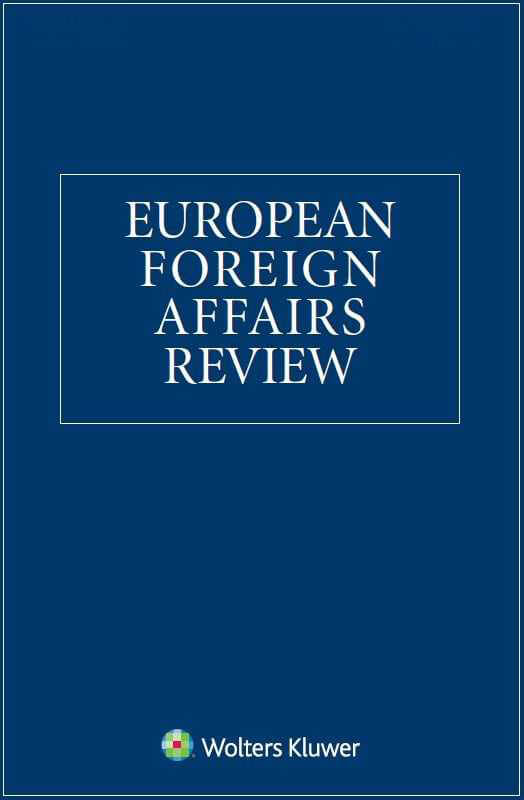Home > All journals > European Foreign Affairs Review > 21(2) >

$15.00 - Rental (PDF) *
$29.00 - Article (PDF) *
Katharina Meissner
European Foreign Affairs Review
Volume 21, Issue 2 (2016) pp. 269 – 288
https://doi.org/10.54648/eerr2016017
Abstract
Since 1958, the European Parliament (EP) has come a long way from being a talking shop to being a powerful legislative organ. In the European Union’s external relations, the EP’s role was initially very weak, when it was sometimes not even consulted on international agreements. The Lisbon Treaty strengthened the parliamentary role in external relations covering policies where the ordinary legislative procedure applies by ascribing the EP the right to ratification of international agreements. Formally limited to voting on final agreements, the EP has widely expanded its informal role in external relations since the Lisbon Treaty’s entry into force in December 2009. Now, its role goes beyond the provisions as laid out in the Lisbon Treaty and even the role of national parliaments in international agreements. Since the negotiations on a Transatlantic Trade and Investment Partnership (TTIP), the EP has been active at all stages of negotiations – negotiation directives, negotiation rounds, ratification of agreement, and implementation of agreement – which activities reach as far as influencing the agreements’ substance. Analysing with what strategies the EP has achieved this involvement – by providing original data from fifteen semi-structured interviews with EU officials – this article assesses the EP’s informal role in the negotiation of international agreements since the Lisbon Treaty in three in-depth case studies: the SWIFT agreement, the Anti-Counterfeiting Trade Agreement (ACTA), and the ongoing TTIP negotiations.
Extract
